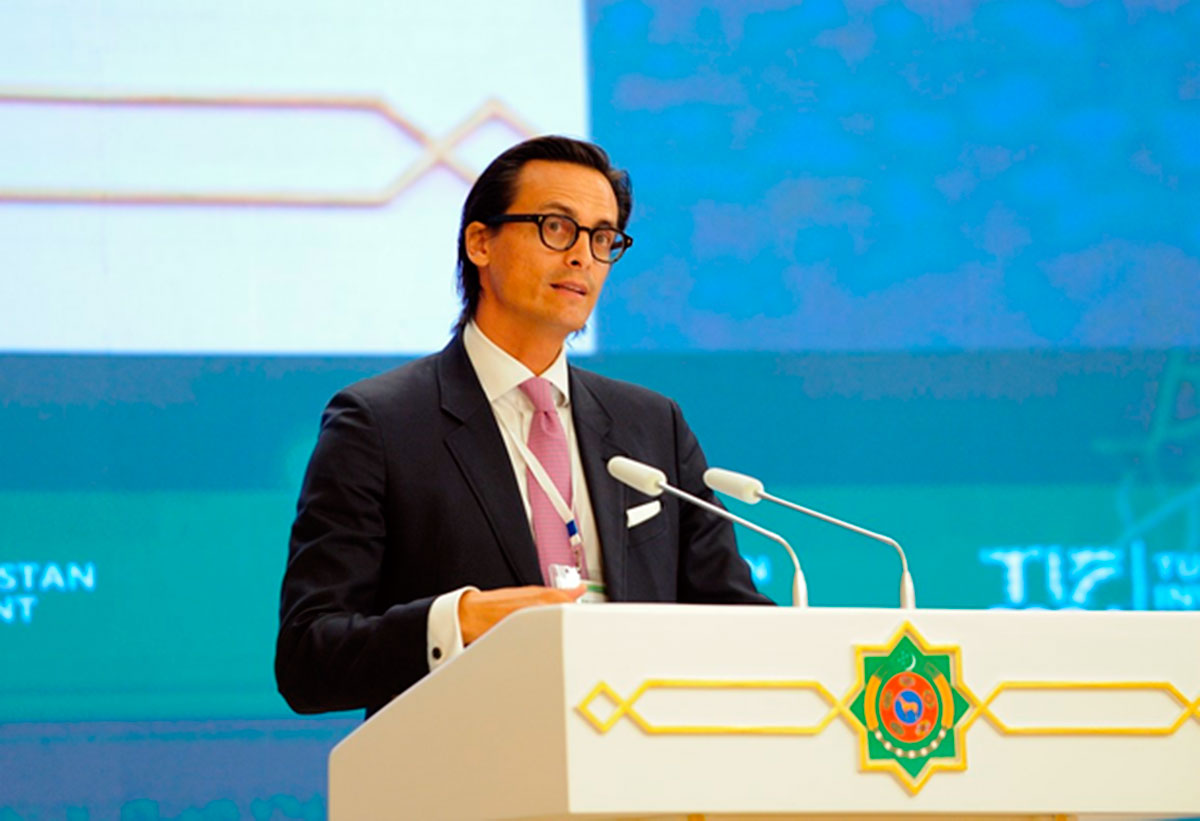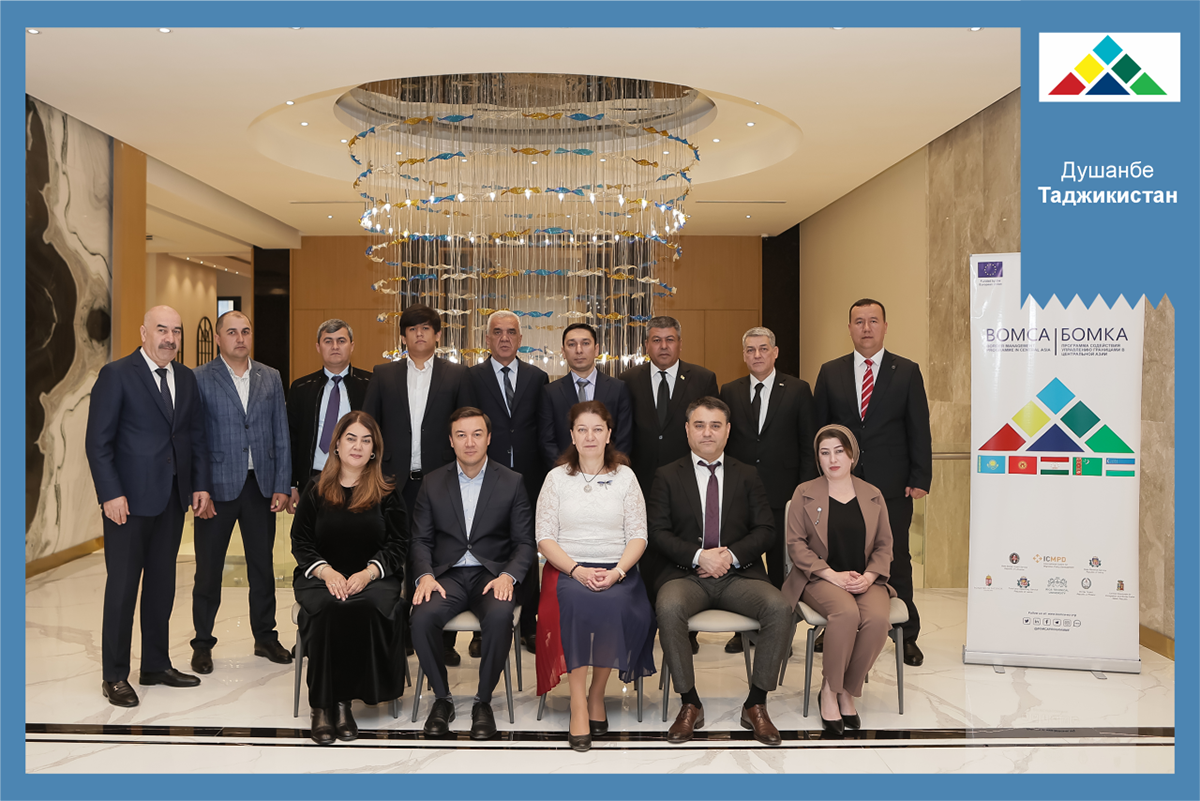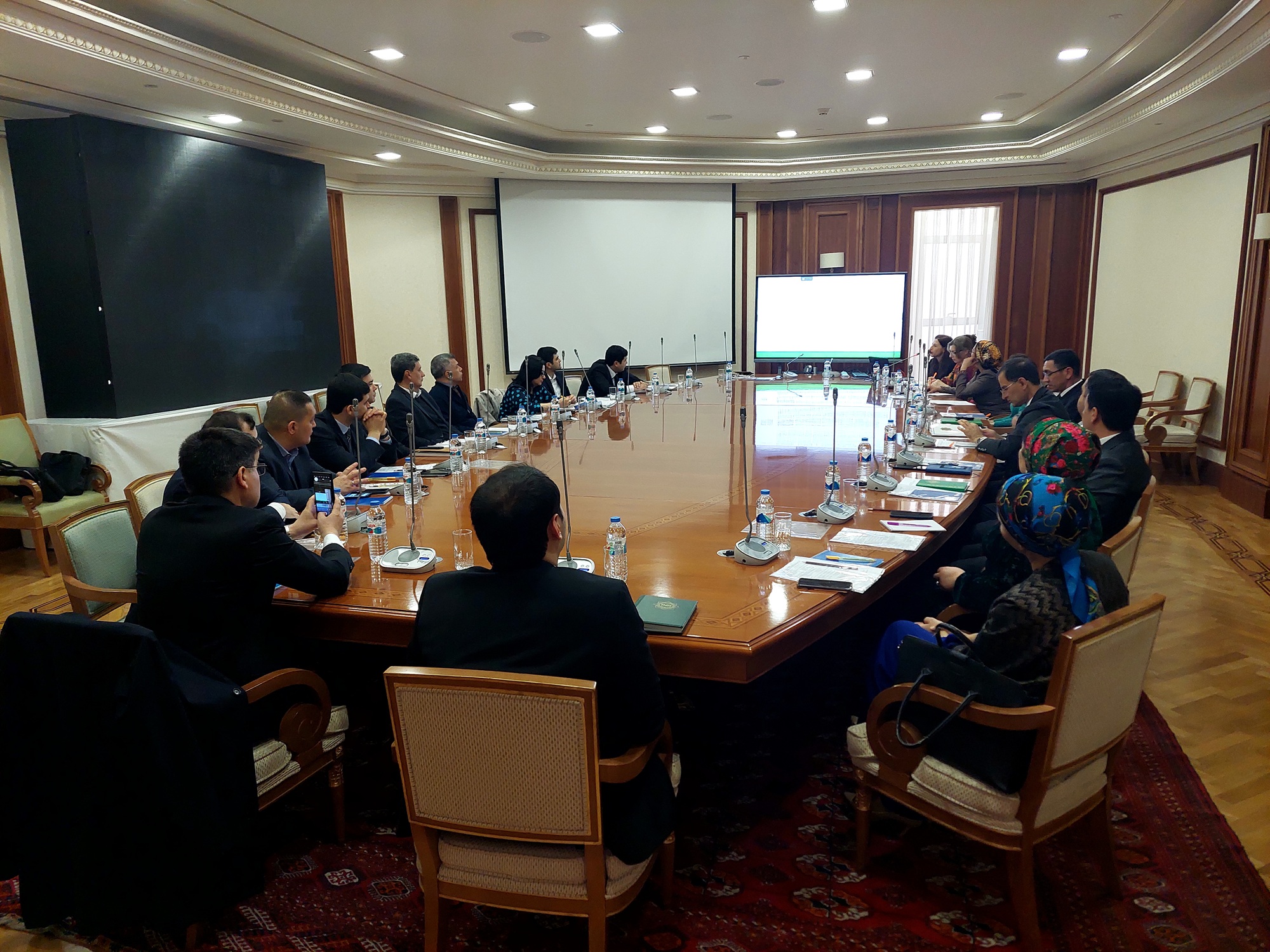The upcoming International Forum to Attract Foreign Investments in Turkmenistan's Economy (TEIF 2025), scheduled for April 23-24, 2025, in Kuala Lumpur, Malaysia, is poised to be an all-important event, drawing together a cohort of leading experts in investment policy.
Among the distinguished participants is Mr Leandro Slovinski, the editorial director of 'The Investor,' the flagship publication of Beyond Investments Group. This leading consulting and publishing firm is renowned for engaging global decision-makers through business intelligence, influential reporting, and a private investment club, providing the latest insights into emerging markets and direct access to a network of over 150,000 investors across 48 countries, with a collective $60 billion in available investment capital. It is noteworthy that The Investor publication is serving as a media partner of the Forum and will be providing real-time coverage of the event. Mr Leandro Slovinski will act as the moderator for Session 4: " Fostering Synergy Between Turkmenistan and Malaysia’s Private Sectors: Advancing Industry and Services." Mr Slovinski’s involvement underscores the forum's significance, as it aligns with the core themes presented in the following article of his, which provides a comprehensive overview of Turkmenistan's ongoing economic transformation. The article details Turkmenistan’s achievements, including exceeding its 2024 foreign investment target and robust GDP growth, setting the stage for the crucial discussions that will unfold in Kuala Lumpur. By choosing this strategic hub in Southeast Asia, Turkmenistan aims to broaden its investor base beyond traditional partners, tapping into the dynamic economies of the ASEAN region.
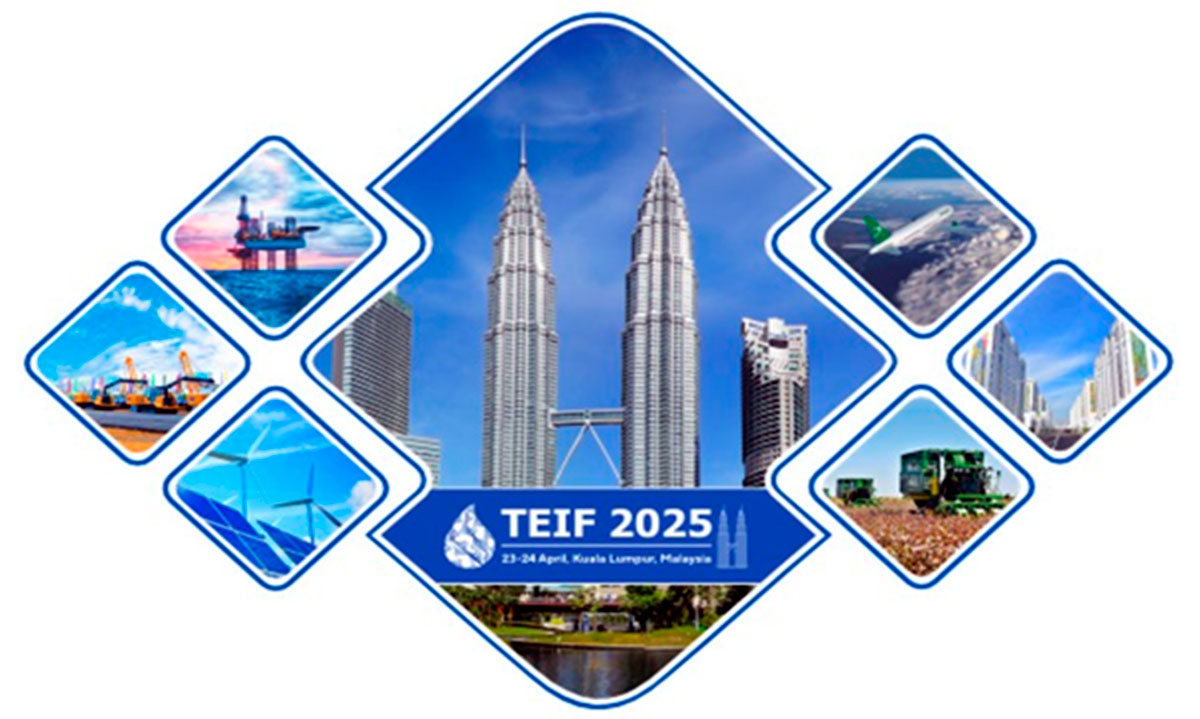
For decades, Turkmenistan has remained a country of strategic importance in Central Asia, with vast energy reserves and a location that places it at the crossroads of major trade routes. In recent years, the country has undergone a notable shift, gradually opening its doors to foreign investors and diversifying its economic base beyond natural gas. The government’s strategic push to attract international investment has positioned Turkmenistan as an emerging destination for global capital.
Since gaining independence, Turkmenistan has relied heavily on energy exports, leveraging its substantial natural gas reserves. The mid-2000s marked a turning point as the country sought to broaden its economic partnerships, forging trade agreements with multiple nations and integrating into global infrastructure projects. The expansion of energy routes and deeper engagement with economic blocs signaled an increasing openness to international trade. Turkmenistan’s participation in global initiatives such as major pipeline projects and regional trade agreements reinforced its role as a vital economic player in Eurasia.
While hydrocarbons continue to dominate the economy, recent government policies have aimed at broadening the country’s industrial base. Under the leadership of President Serdar Berdimuhamedov, Turkmenistan has accelerated reforms focused on modernizing the economy and fostering private-sector growth. Agriculture, logistics, digital infrastructure, and industrial production have emerged as priority sectors, with the government implementing targeted policies to encourage both local and foreign investment.
One of the key areas of progress has been regulatory and legal reforms aimed at improving the investment climate. Streamlined business registration procedures, new tax incentives, and the creation of free economic zones have made it easier for foreign investors to enter the market. The Turkmenbashi International Seaport Free Economic Zone, for example, provides significant incentives for businesses engaged in logistics and trade, enhancing the country’s role as a regional transport hub. Additionally, the gradual privatization of state-owned enterprises has opened previously restricted industries to private capital, ensuring a more competitive and efficient market.
A significant milestone in Turkmenistan’s economic strategy is the Program for the Socio-Economic Development of Turkmenistan and Investments in 2025, which was recently approved by President Berdimuhamedov. This program aims to enhance economic competitiveness, increase exports, and promote import substitution while supporting food security and environmental sustainability. A major focus is on integrating modern digital technologies and advancing the green economy, ensuring that development is both sustainable and inclusive. Furthermore, the program emphasizes improving the quality of services in various sectors, from healthcare to infrastructure, ensuring that economic growth translates into tangible benefits for the population.
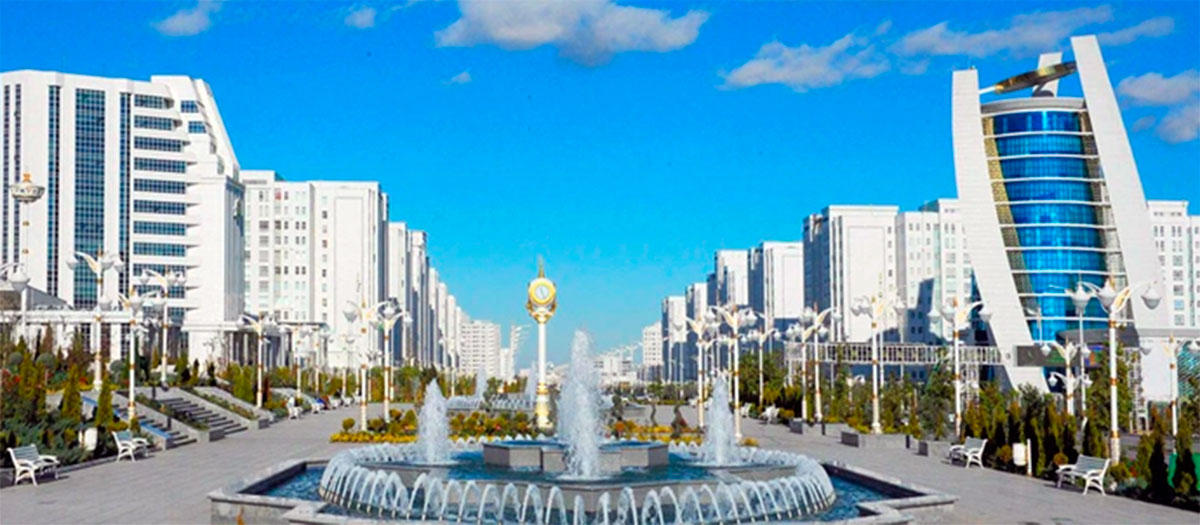
The results of these policies have been reflected in key economic indicators. In 2024, Turkmenistan exceeded its foreign investment target by 110%, securing $11 billion in foreign investments. The country’s GDP grew by 6.3%, with investments accounting for 17.6% of total economic activity. Looking ahead, the government aims to increase total investment to $11.5 billion in 2025, demonstrating its commitment to sustaining economic momentum.
Investment distribution is also undergoing a transformation. According to the latest data, 65.6% of planned investments in 2025 will be directed toward production projects, ensuring industrial expansion and technological advancement. Additionally, 32.9% of all investments are expected to originate from the private sector, while 9.7% will come from foreign investors. These figures highlight the government’s strategy of balancing public-sector-driven projects with increased private and international participation.
While energy remains a dominant sector, opportunities in infrastructure and logistics are growing rapidly. The Turkmenbashi International Seaport, opened in 2018, has bolstered the country’s role as a regional trade hub, facilitating connections between Asia, Europe, and the Middle East. Investments in rail and road networks are further reinforcing Turkmenistan’s position as a key transit corridor, creating opportunities for global infrastructure firms looking to expand into Central Asia.
The agricultural sector is another area of focus. With a drive to improve food security and reduce reliance on imports, Turkmenistan is investing in irrigation technology, high-yield crop production, and agro-processing industries. Cotton and wheat production, in particular, offer significant investment potential, as the government seeks to modernize agricultural supply chains and boost exports.

The digital economy is also emerging as a critical pillar of Turkmenistan’s economic strategy. Efforts to expand IT infrastructure, digital banking, and fintech services are creating opportunities for technology firms. Although the telecommunications sector remains largely state-controlled, gradual reforms are expected to open the market to new players, fostering competition and innovation.

Tourism, too, has seen renewed interest as the government looks to leverage the country’s Caspian Sea coastline, vast desert landscapes, and UNESCO-listed historical sites. With increased investment in luxury resorts, eco-tourism projects, and cultural preservation, Turkmenistan is positioning itself as a unique travel destination within the broader Central Asian region.
Supporting private-sector development is a key priority. By 2025, the share of the non-state sector in GDP (excluding hydrocarbons) is expected to reach 71.6%, a clear indication of the government’s push to diversify economic output. Policies promoting entrepreneurship, expanding financing options for small and medium-sized enterprises (SMEs), and enhancing access to credit are all part of this strategy. Additionally, the government has introduced tax incentives, customs duty exemptions, and preferential land lease agreements for investors willing to establish operations in high-priority sectors.
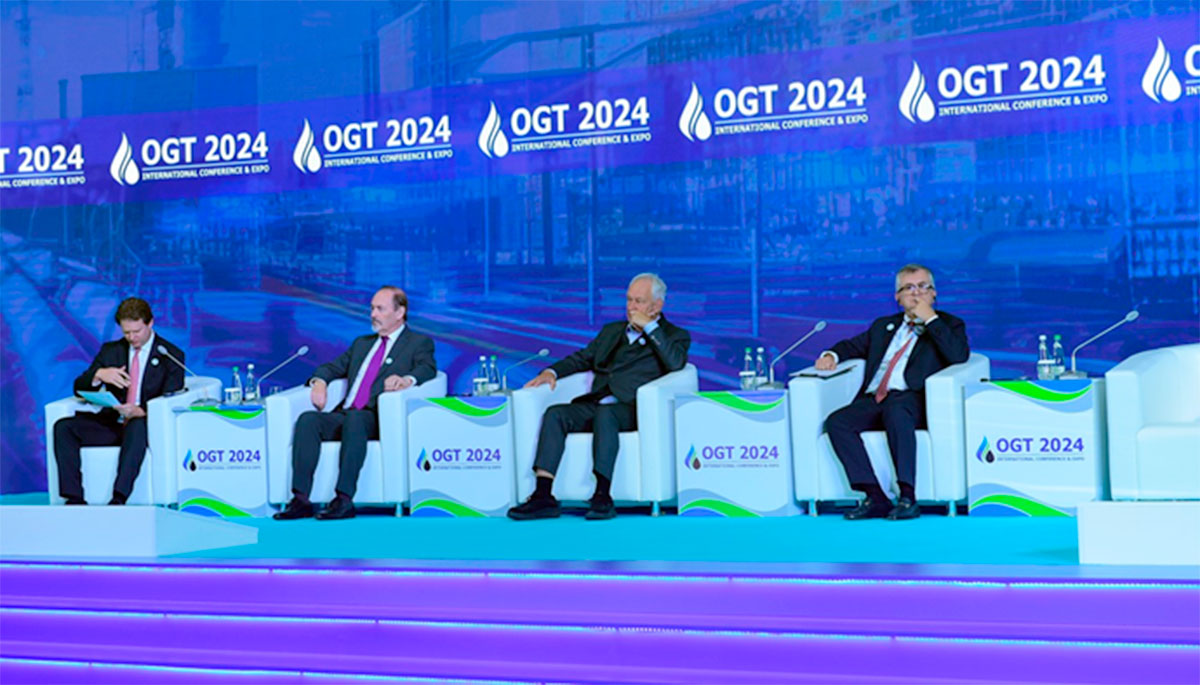
Turkmenistan has also laid a strong legal foundation to ensure investor confidence. The country has enacted comprehensive laws covering investment activity, foreign investment protection, and public-private partnerships. Currently, 67 agreements regulating investment activity are in force with international partners, including 28 agreements on mutual investment protection and 39 agreements on the avoidance of double taxation. These measures provide foreign investors with a structured and secure environment, ensuring predictability in their business dealings.
Turkmenistan’s economic trajectory is set to focus on sustainability, innovation, and deeper global integration. The country’s green energy initiatives, investments in smart infrastructure, and continued commitment to regulatory improvements all signal a modernizing economy that is adapting to global trends. Streamlining business regulations, expanding free economic zones, and fostering stronger ties with international financial institutions will be crucial in ensuring long-term success.
Foreign direct investment will remain the cornerstone of Turkmenistan’s future economic policy, driving technology transfer, job creation, and industrial modernization. The government’s proactive engagement with international investors reflects a long-term vision of ensuring that foreign capital is not only welcomed but also strategically aligned with the country’s development goals.
As Turkmenistan continues on this path of transformation, it is gradually establishing itself as a prime destination for investment in Central Asia. With robust government support, a clear economic vision, and tangible results in attracting FDI, the country is well on its way to becoming a competitive player in the global investment landscape. The momentum behind this shift suggests that Turkmenistan’s evolution into a key regional economic hub is only just beginning.
Mr Slovinski's article effectively reflects the key themes of the upcoming TEIF 2025. Notably, as of today, more than 250 delegates from over 30 countries, as well as representatives of international organisations, major energy companies, ministries, and government agencies, have registered for the Forum.
Among the prominent figures attending are Armida Salsiah Alisjahbana, Executive Secretary of the United Nations Economic and Social Commission for Asia and the Pacific (ESCAP); Haitham Al Ghais, Secretary General of OPEC; Fatih Birol, Executive Director of the International Energy Agency (IEA); Atsuko Hirose, Secretary General of the International Energy Charter; as well as distinguished leaders of relevant sectors, including Dato' Sri Haji Fadillah bin Haji Yusof, Minister of Energy Transition and Water Transformation of Malaysia, and Tengku Muhammad Taufik Tengku Kamadjaja Aziz President and Group CEO of PETRONAS.
For more details, please visit: TEIF 2025.




